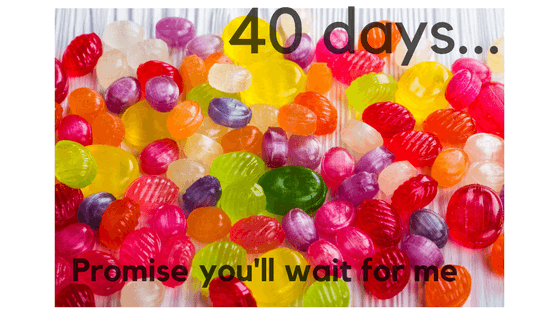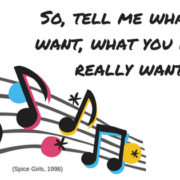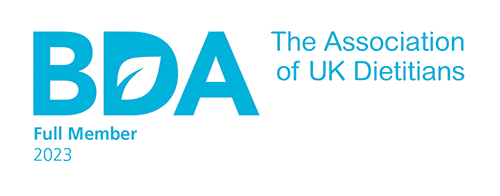Lent
Preparation or deprivation?
Lent has been hijacked. By dieters. It’s not surprising – forgoing food for 40 days is a guaranteed way to lose weight (although I’m not sure that was Jesus’s motivation).
Deprivation is at the heart of both Lent and dieting. Despite it also being about preparation and reflection, for those with a weight loss agenda, the focus is mainly on the deprivation aspect of Lent. You commit to ‘give up’ your usual vices like sugar in tea, biscuits and sweets (while secretly hoping you’ll be lighter by the end of it) and disregard preparation for the aftermath. Another job half done. But a least you’ll get to feel virtuous for a few weeks.
If you do observe Lent, with even a slight weight loss agenda, how about doing it differently this year by focusing more on the preparation and reflection side. Ditch the deprivation. Give up on giving up.
Instead of stopping doing something, try to start doing something that will complement your weight loss agenda. And you never know, it might stick…..
So here goes, 40 days, 40 suggestions. Choose only one, choose a different one every day….or give up sweets again! Your call.
What are you going to do for Lent?
- Every time you use an escalator, excuse yourself past people whose legs have temporarily stopped working and keep moving!
- If you feel bad or guilty after eating something, your head is trying to alert you to something important (for example, a ‘broken diet rule’). These thoughts and feelings are warning signs of an unhelpful relationship with food. Monitor your thoughts and feelings around food.
- Stop labelling food as ‘good’, ‘bad’, ‘healthy’ or ‘unhealthy’ if you know from experience that this can negatively affect your food decisions. Food is food is food.
- Referring to some foods as ‘treats’ elevates their importance. Crisps are crisps, chocolate is chocolate, and ideally should have no more significance than an apple. Try to be neutral with all food.
- Have a cup of tea or coffee…on it’s own. This is not about giving up biscuits, but about challenging habits.
- Pay attention to your hunger and fullness levels. If you recognise you are full before your plate is empty, practise leaving the rest.
- Observe how often you eat that has nothing to do with hunger. Start to think about what drives this eating (eg boredom, comfort, tiredness). This will give you clues about the areas to work on to help manage your weight.
- Eat with minimal distractions – move away from the computer, stop checking social media and turn off the TV over dinner. Pay attention to your food and you might find yourself enjoying it.
- If you know you have a habit of eating due to boredom, choose a non-food activity to pass the time.
- Choose food based on what you know you want and will enjoy, instead of eating what you feel you should eat (diet products….looking at you).
- Find a fun activity to do – trampolining, aerial yoga, table tennis. It doesn’t matter what, just do it and enjoy.
- Try a fruit, vegetable or other food you’ve never tasted before.
- Cook a vegetarian meal – plant based eating is all the rage these days.
- Think about the purpose scales serve in your life. Decide not to weigh yourself if they often make you feel bad about yourself. Make your food choices based on what you want to eat, guided by hunger and fullness, not based on a number on the scales.
- Question things that don’t make sense such as “You’re not losing weight because you’re not eating enough”. If it doesn’t make sense, don’t accept it as fact.
- For all the foods you eat today, but especially ‘diet’ foods or snack foods…slow down and TASTE…..do you really like them that much? Be fussy!
- Aim to eat food that satisfies. Satisfaction is more important than simply not being hungry. Being satisfied will help you to eat less.
- Tackle ‘comfort eating’. If you ‘comfort eat’, you’re definitely eating, but are you getting comfort? At best, you’re getting a temporary distraction from the real problem. Think of options that will deal with the problem.
- Sleep, sleep, sleep – lack of sleep is known to affect hormones involved in appetite regulation. If you notice that you eat more, or make different choices, when you are tired – get more sleep.
- Stop comparing yourself to others. You may see people around you eat more than you, but this observation does not help you in any way, and more likely makes you feel worse. DON’T. DO. IT.
- Start noticing how your food choices make you feel physically – neutral, energised, lethargic, sluggish, bloated. Choose to eat food that make you feel good.
- When you see food, do you see calories, ‘points’, ‘syns’, fat content, sugar content…..? This is the science end. But eating well is an art. Knowledge is only helpful if you are skilful at managing it. Practise art.
- Stop self blame. If you have dieted repeatedly…and ‘failed’…you most likely blame yourself but has the diet got something to answer for? Think about the foods you struggle with, get help to deal with those, and don’t repeat old dieting mistakes.
- Make a decision to eat for health not dieting. So avocados, nuts, cheese…back on the menu (if you like them), and enough of the diet yoghurts, rice cakes and low fat everything (unless you happen to really love them. Really?)
- Use your taste buds…if something looks good, but doesn’t taste great, don’t eat it.
- Exercise – choose something you enjoy and makes you feel good, and do it for those reasons. Keep weight loss out of it.
- Drink……enough to keep your pee pale.
- Sit less….or do some chair based exercises while you sit.
- Eat like you respect yourself.
- Tell people your boundaries. If you don’t want them to comment on your food choices or weight, tell them.
- Batch cook when you get the chance – cook once, eat more than once.
- Look at the ingredients lists of foods. If it reads like a science experiment or has multiple ingredients not immediately recognisable as food, do you want to eat it?
- Stop allowing packet size to dictate how much you eat. If you often eat until packets are empty, then you are not making independent food decisions – the food manufacturers are pulling the strings.
- Don’t get caught out having nothing to eat. Fill the freezer – frozen vegetables, fruit, fish, meats, oven chips – so you always have a back-up plan.
- Ditch the euphemisms. For example “I’m trying to be good”. If eating well is so hard you have to ‘try to be good’ then you are either eating foods you’re not really enjoying or denying yourself foods you really enjoy (or both). Does this sound like a helpful long term plan?
- Eat publicly. If you eat less when in company compared to when you are alone, then you are concerned about how others might judge your eating. But by eating privately, you are judging yourself.
- Stop choosing arbitrary days to start dieting (Monday seems to be popular!). You can respect your hunger, fullness and satisfaction NOW!
- Don’t let technology take over either your decision making or your common sense. For example, if you’re using an app to count calories, it might advise you to eat less or eat more. Your app does not know when you are hungry, satisfied or full. You do.
- Don’t let other people affect your food decision making. Be independent. Focus on what you want.
- Read self help material. Might as well start with Diet Dilemmas book!
40 days, 40 suggestions. Pitching preparation. Ditching deprivation.







